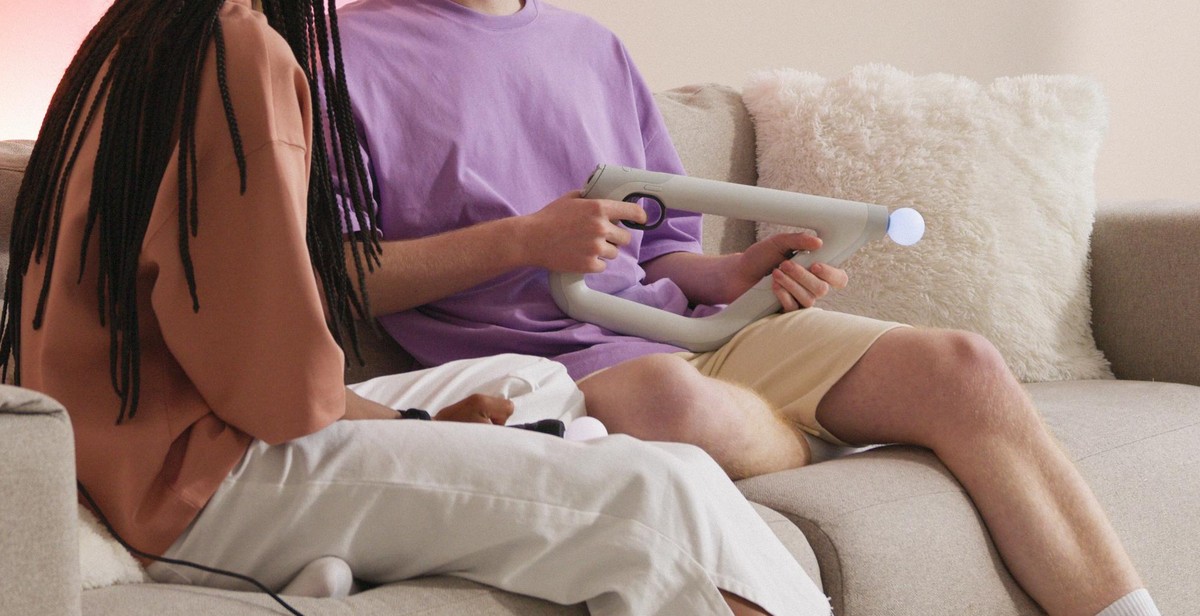Breaking Free: Overcoming the Chains of a Controlling Relationship
Are you feeling trapped in a relationship where your partner is controlling your every move? Do you feel like you are walking on eggshells all the time, trying to avoid their anger or disapproval? If so, you are not alone. Many people find themselves in controlling relationships, and it can be incredibly difficult to break free.
As someone who has personally experienced the pain and frustration of being in a controlling relationship, I understand how hard it can be to take the first steps towards freedom. However, I also know that it is possible to break free and regain control of your life.
The Psychology of Controlling Relationships
Controlling relationships can take many forms, from emotional manipulation to physical abuse. However, at the core of all controlling relationships is a power dynamic that is skewed heavily in favor of one partner. The controlling partner may use a variety of tactics to maintain control, including:
- Isolating their partner from friends and family
- Gaslighting or manipulating their partner’s perception of reality
- Threatening or using physical violence
- Withholding affection or resources as a form of punishment
These tactics can leave the victim feeling powerless, helpless, and alone. However, it’s important to remember that there is always a way out.

My Personal Experience with a Controlling Relationship
As a love and relationships psychology guru, I have seen numerous cases of controlling relationships. However, I never thought that I would find myself in one until I did. Looking back, I realize that I missed the warning signs and allowed the relationship to escalate to a dangerous level.
How it Started
When I met my ex-partner, I was impressed by their confidence and assertiveness. They seemed to know what they wanted and how to get it. At first, I found this quality attractive and empowering. However, as we started dating, I began to notice that they were also very controlling.
They would dictate what I wore, who I talked to, and where I went. They would get angry if I didn’t answer their calls or texts immediately. They would criticize my friends and family and make me feel guilty for spending time with them. I thought that they were just being protective and caring, but in reality, they were trying to isolate me and manipulate me.
The Warning Signs
As the relationship progressed, the controlling behavior became more apparent. My ex-partner would monitor my social media accounts, emails, and messages. They would accuse me of cheating or lying without any evidence. They would threaten to harm themselves or me if I tried to leave them. They would belittle me and make me feel worthless.
Despite these warning signs, I stayed in the relationship because I thought that I could change them or that they would change themselves. I also felt trapped and scared to leave because I had invested so much time and energy into the relationship. I felt like I had no other options.
The Breaking Point
The breaking point came when my ex-partner physically assaulted me. I realized that I could no longer ignore the red flags and that I needed to get out of the relationship as soon as possible. It was a difficult and painful process, but I had to prioritize my safety and well-being.
Breaking free from a controlling relationship is not easy, but it is necessary. It requires courage, support, and resources. If you or someone you know is in a controlling relationship, seek help and guidance from a professional or a trusted friend or family member. Remember that you deserve to be treated with respect and dignity, and that you have the power to break the chains of a controlling relationship.

Understanding a Controlling Relationship
Being in a controlling relationship can be suffocating and emotionally draining. It can leave one feeling trapped and helpless. Understanding the dynamics of a controlling relationship is crucial in identifying it and taking the necessary steps to break free.
What is a Controlling Relationship?
A controlling relationship is one where one partner seeks to exert power and control over the other partner. This control can be expressed in various ways, including emotional manipulation, physical abuse, financial control, and isolation from family and friends.
Controlling behavior in a relationship is often subtle and can be difficult to identify. It can start with small, seemingly insignificant acts of control, such as criticizing one’s appearance or choice of clothing. Over time, the controlling partner may escalate their behavior to more severe forms of control, such as monitoring the other’s phone, stalking, or physical violence.
Types of Control
Controlling behavior in a relationship can take many forms, including:
- Emotional control: This involves manipulating the other person’s emotions to gain power and control over them. It can include guilt-tripping, gaslighting, and emotional blackmail.
- Physical control: This involves using physical force or threatening physical harm to control the other person. It can include hitting, slapping, or restraining the other person.
- Financial control: This involves controlling the other person’s finances to gain power and control over them. It can include preventing the other person from working, controlling access to money, and forcing the other person to account for every penny spent.
- Isolation: This involves cutting the other person off from their family and friends to gain power and control over them. It can include preventing the other person from seeing or speaking to their loved ones, moving to a new location, or preventing the other person from leaving the house.
Why People Stay in Controlling Relationships
Leaving a controlling relationship is easier said than done. Many people stay in controlling relationships for various reasons, including:
- Fear: The controlling partner may have threatened physical harm or harm to the other person’s loved ones if they try to leave.
- Low self-esteem: The controlling partner may have eroded the other person’s self-esteem to the point where they feel they cannot survive without them.
- Love: The other person may still love their partner and believe that they can change.
- Dependency: The other person may be financially dependent on their partner and feel they cannot survive without them.
Breaking free from a controlling relationship takes courage and support. It may involve seeking help from a therapist, talking to friends and family, or seeking legal assistance. The first step is recognizing the signs of a controlling relationship and acknowledging that it is not a healthy or normal way to live.

Breaking Free from a Controlling Relationship
Being in a controlling relationship can be suffocating and emotionally draining. It is essential to recognize the need for change and take necessary steps to break free from such a relationship. Here are three steps that can help you overcome the chains of a controlling relationship:
Recognizing the Need for Change
The first step to breaking free from a controlling relationship is to recognize that you are in one. It is not always easy to spot the signs of a controlling relationship, especially if it has been going on for a long time. However, some red flags include:
- Your partner constantly checks up on you and wants to know your whereabouts at all times.
- Your partner gets angry or upset when you spend time with friends or family without them.
- Your partner makes decisions for you without considering your feelings or opinions.
- Your partner belittles you or makes you feel inferior.
- Your partner uses threats or intimidation to control you.
If any of these signs sound familiar, it is time to take action and start making changes.
Setting Boundaries
Once you have recognized that you are in a controlling relationship, the next step is to set boundaries. This means communicating with your partner about what you will and will not tolerate. It is essential to be clear and assertive when setting boundaries.
For example, you could say: “I am no longer comfortable with you checking up on me all the time. I need some space and privacy, and I would appreciate it if you could respect that.”
Setting boundaries can be challenging, especially if your partner has been controlling for a long time. However, it is crucial to stick to your boundaries and not give in to their demands.
Seeking Support
Breaking free from a controlling relationship can be scary and overwhelming. It is essential to seek support from friends, family, or a professional therapist. Talking to someone about your situation can help you gain perspective and develop a plan for moving forward.
You could also consider joining a support group for people who have been in controlling relationships. Being around others who have gone through similar experiences can be empowering and help you feel less alone.
Remember, breaking free from a controlling relationship takes time and effort. However, with the right support and mindset, you can overcome the chains of a controlling relationship and live a happy and fulfilling life.

Moving On and Healing from a Controlling Relationship
Breaking free from a controlling relationship is not an easy feat. It takes courage, strength, and a whole lot of self-love and self-care. Here are some tips to help you move on and heal:
Self-Love and Self-Care
The first step in healing from a controlling relationship is to prioritize self-love and self-care. Take time to focus on yourself and your needs. This can include engaging in activities that bring you joy, such as reading, painting, or going for a walk. It can also mean seeking support from friends and family, or even a therapist. Remember that you deserve to be treated with respect and kindness, and that starts with how you treat yourself.
Rebuilding Trust in Relationships
It’s common to have trust issues after leaving a controlling relationship. However, it’s important to remember that not all relationships are the same. Take things slow and communicate openly with your partner about your concerns and boundaries. Building trust takes time, but it’s worth it when you find someone who respects and supports you.
Learning from the Experience
While it’s important to focus on moving forward, it’s also essential to reflect on the lessons you can learn from your past relationship. Ask yourself what red flags you may have ignored, and what you can do differently in the future. Remember that each experience, even a difficult one, can teach us valuable lessons.
Healing from a controlling relationship takes time and effort. But with self-love, self-care, and a willingness to learn and grow, you can move forward and find happiness and fulfillment in your future relationships.
